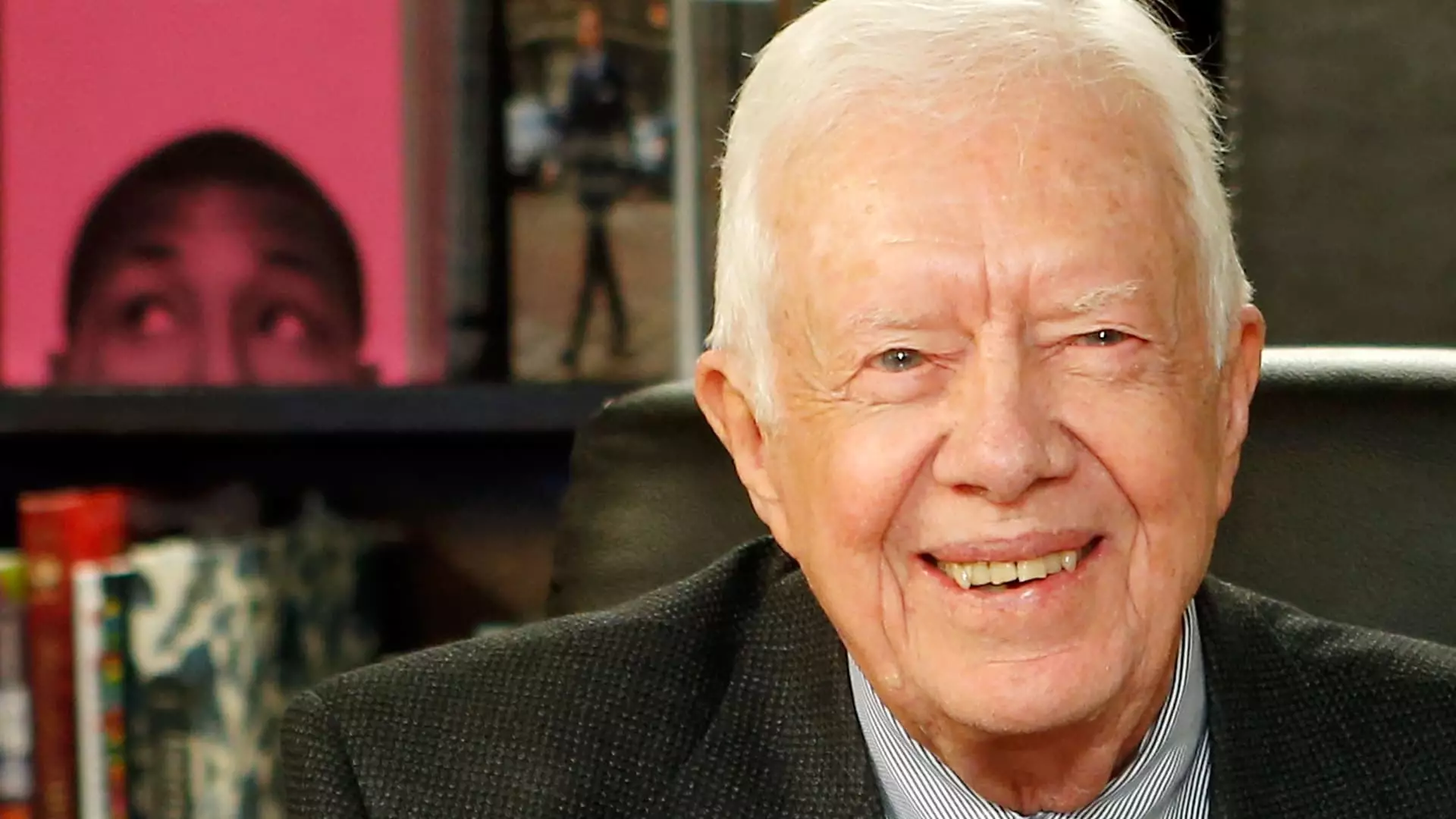Jimmy Carter’s journey from a peanut farmer in Georgia to the 39th President of the United States is not just a tale of political ascent; it’s a narrative infused with deep reflections on moral values, human rights, and an unwavering commitment to peace. His life and presidency were marked by moments of introspection and bold declarations that characterized a leader grappling with the complexities of governance in a rapidly changing world. Carter’s presidency may have seen challenges, but his legacy remains one of an earnest attempt to prioritize ethics over power.
Carter announced his candidacy with an intimate acknowledgment of his flaws, suggesting that authenticity and humility were central to his approach. The candid admission, “I’ve looked on a lot of women with lust,” made in a Playboy interview, might have shocked some, but it highlighted his philosophy—resonating with the human experience shared by many. Carter sought to engage with voters not as a distant politician but as an individual intimately aware of human imperfections.
This openness framed his presidency and policy decisions. He stressed America’s moral obligation to champion human rights around the globe, underscoring that the nation’s strength lay in its commitment to its values. His rhetoric following his inauguration, wherein he declared that “we can never be indifferent to the fate of freedom elsewhere,” served as a reminder of the intersectionality between American interests and global human rights. This mantra established a profound ethos that shaped both domestic policies and international relations during his administration.
The energy crisis of the late 1970s marked a pivotal moment—not just for America’s economy but as a test of leadership. Carter famously described the response to this crisis as the “moral equivalent of war.” His emphasis on uniting the nation to confront energy dependency was radical for its time, portraying the struggle against energy scarcity not merely as a policy issue but as a patriotic duty. This perspective aimed to galvanize the American public towards collective responsibility, urging them to embrace sacrifice and cooperation for a greater good.
Despite these efforts, his presidency faced significant hurdles, notably the Iran hostage crisis, which put his ideals to the test. While many urged swift military retaliation, Carter chose the path of restraint, reflecting a complex moral stance that prioritized human life over political power. “I could have wiped Iran off the map,” he later admitted, revealing his internal conflict between strength and humanitarian principles. Carter emerged from such challenges with a reflection that embodies his commitment to nonviolence and diplomacy.
Enduring Values in a Global Context
Carter’s foreign policy was undeniably shaped by his convictions about human rights. As he pursued diplomatic normalization with China and initiated peace processes between Egypt and Israel, he illustrated the potential for peace rooted in mutual respect and understanding. His legacy is intertwined with significant international agreements that sought to draw nations together in a time of tension.
In later years, Carter’s reflections on these diplomatic endeavors were often tinged with regret, as he noted missed opportunities for lasting resolution. “If I had another term in office, I could have implemented peace agreements never fully realized,” he stated, hinting at the weight of unfulfilled potential and the limitations inherent in political tenure. Despite his achievements, these contemplations show a leader both proud and remorseful, dedicated to peace but bound by the realities of his time.
Legacy Beyond Politics
Carter’s influence extended well past his presidency. In post-office years, he has embraced activism, championing human rights, humanitarian initiatives, and environmental issues. His Weissman award of the Nobel Peace Prize in 2002 encapsulated this spirit, recognizing his enduring efforts towards peace and diplomacy.
Carter’s candid reflections on mortality in his later years further humanize the narrative surrounding his life. His serene acceptance and comfort with death spoke volumes about his faith and perspective on life’s transient nature. “I found that I was absolutely and completely at ease with death,” he proclaimed, offering insights that many have found inspiring as they grapple with their own existential fears.
In summation, Jimmy Carter’s life and presidency illuminate themes of integrity, compassion, and the relentless pursuit of peace. His candid admissions about personal flaws, commitment to ethical governance, and belief in the moral responsibility of leaders reflect a legacy that transcends the mere act of holding office. As he continues to advocate for human rights and social justice, Carter’s story serves as a reminder of the possible depth of character within a politician, urging future leaders to reflect on values that matter most in both governance and life.



Leave a Reply